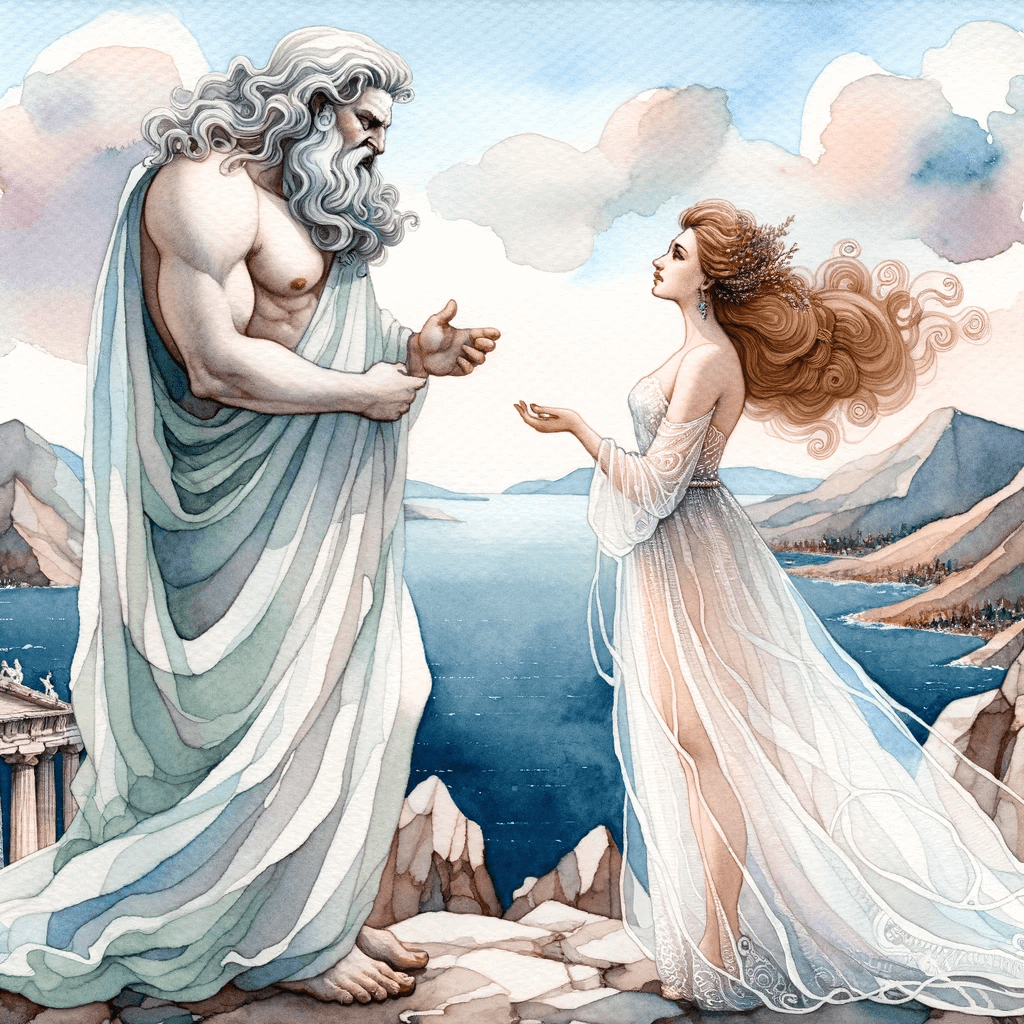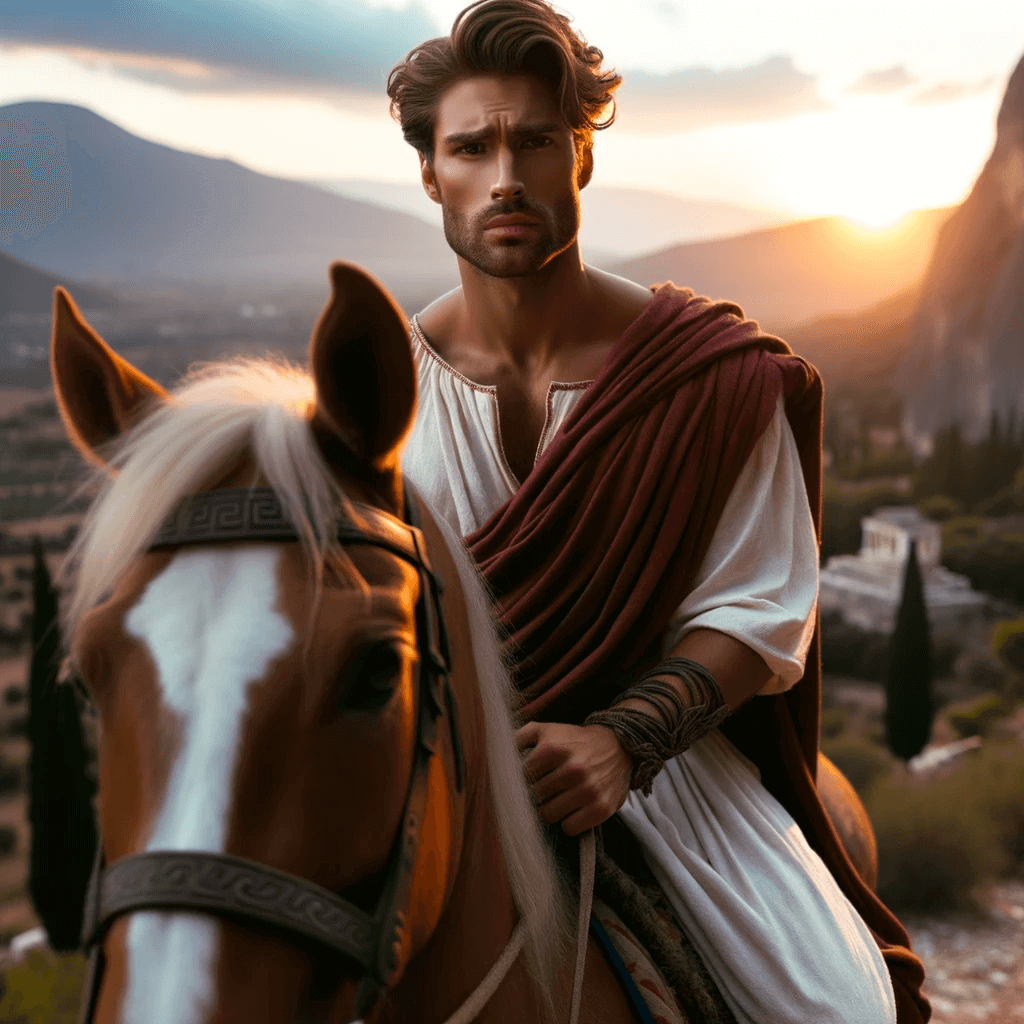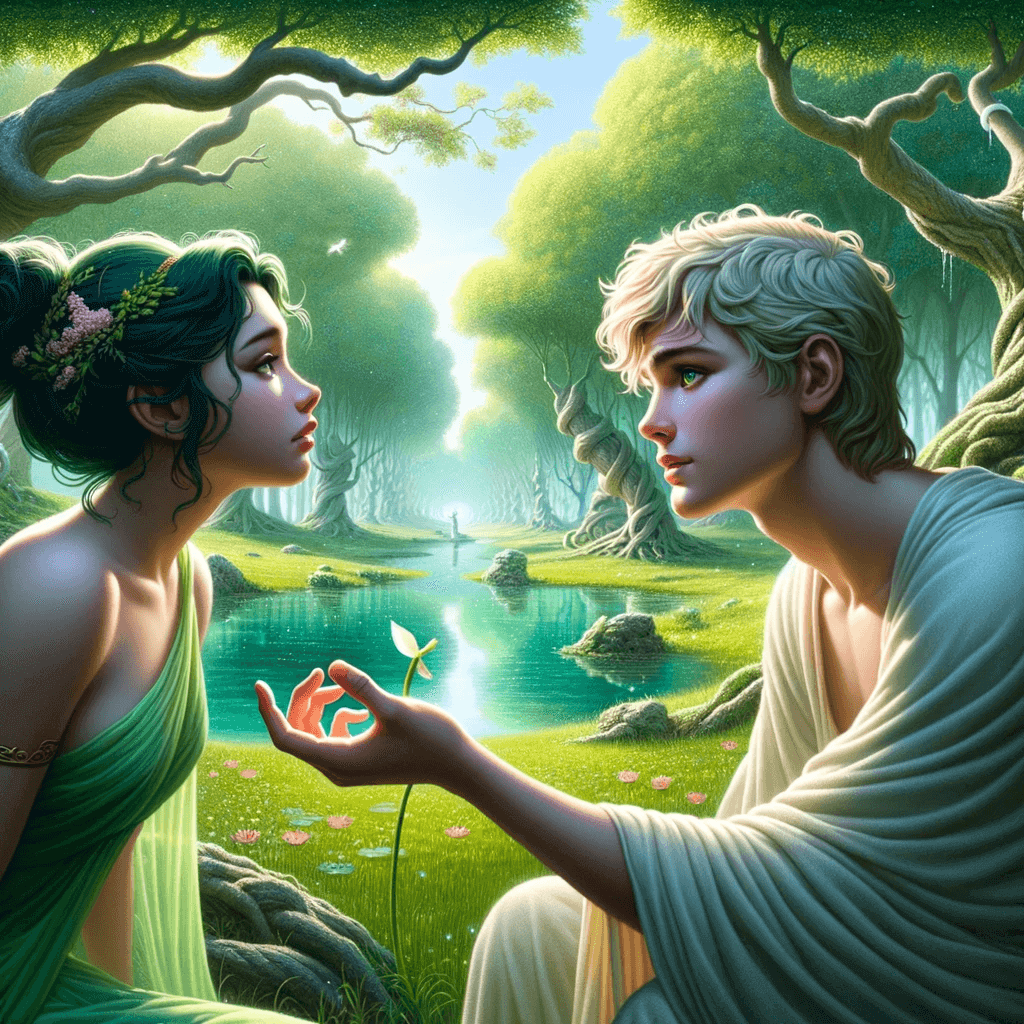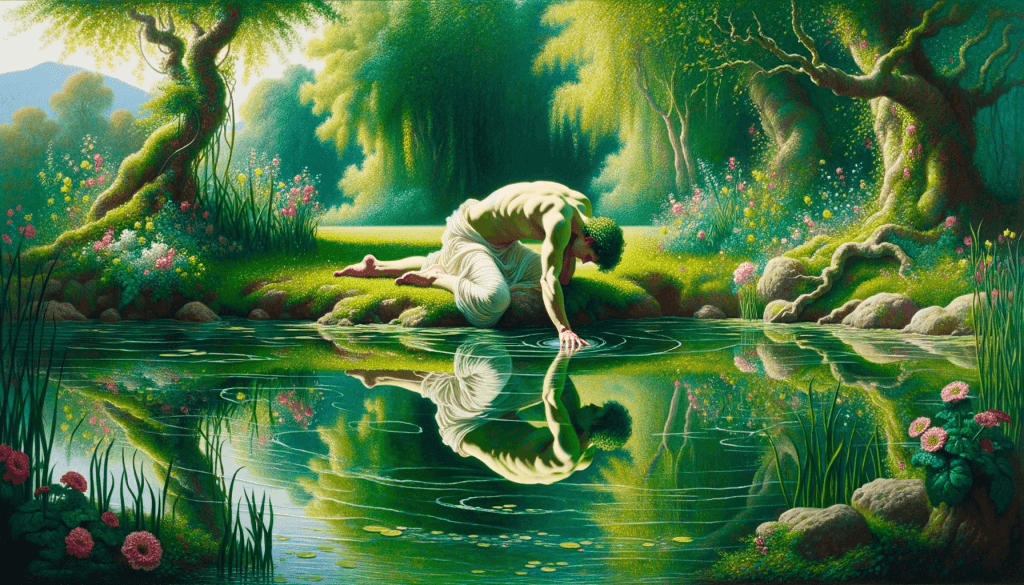Over 3.5 billion people use some form of social media today. The implications of this on an individual and societal level are unprecedented, the effects and meaning of which may not be fully grasped in our lifetimes, let alone the many generations that come after.
But one thing is clear, there is a definite negative side of social media.
In this post I would like to explore some timeless wisdom and warnings from a story I read long ago. While millenia old, it is eerily relevant to today.
Stories have a unique power. They are not just entertainment but vessels that carry ideas, concepts, and experiences across time. The ones that stay relevant do so because they address something timeless about ourselves- no matter the technological advances of the time.
The story I’m going to share, retold in my own words, is an ancient Greek myth. Among its many variations, this one stands out for its haunting relevance to our lives today.

TELLING STORIES- THE BEGINNING
The story starts with a nymph (a young female deity) named Echo. Echo was the most carefree of all her sisters, and was always smiling. But what she was most known for was her stories. She could weave fascinating tales and entrance anyone with her voice, holding them still for hours on end.
This skill did not go unnoticed by Zeus, the king of all the gods, because he loved women. He would sneak away and hide his actions with them from his wife, Hera, who was known for her rage should she be angered.
And so Zeus enlisted Echo to help distract Hera while he forayed with women, both mortal and divine. But Hera could not be fooled for long and upon discovering the truth, enraged, set a curse on Echo.
“Since you like to talk so much I curse you that you may always have the last word but never the first. And it will not be your own, because you will never speak a word that is yours again” she said.
And so Echo was cursed to only be able to speak back the last words someone else would say, and never be able to speak for herself.

THE MOST BEAUTIFUL HUMAN
The story continues with a boy named Narcissus, known for his extraordinary beauty. Both men and women alike would instantly fall in love with him upon first sight. But Narcissus was stone cold and could never love, for all knew that he was too involved with himself to ever love another. He would cast aside any attempts with proud annoyance.
As he rode through the forest hunting deer one day, near Mt Helicon, the home of the gods, Echo spied him and instantly fell in love. She followed him but kept her distance as he was a mortal. With each step she took she fell more in love. As she crept closer she accidentally made some noise.
“Hey, Who’s there?” Narcissus asked.
“Who’s there?” Echo replied, but remained hidden.
Baffled, Narcissus stayed quiet for a few moments before trying again.
“It is I, Narcissus, come here” he tried again.
“Narcissus, come here” the reply came as Echo started moving away, scared she would be found.
Growing frustrated, he called out “Come here” to which all he received was the same distant repeat of “come here” as she moved away from him.
Impatient, he strode into the forest, calling out each time and receiving the reply, for Echo had no choice but to do so by Hera’s curse. Wherever Echo moved, Narcissus followed. Soon the forest opened up into a beautiful grassy meadow sloping down to a crystal clear pond. Echo hid in the reeds around the water’s edge, and Narcissus came closer.
No longer able to move as she was trapped and held in place by his beauty, Echo was spotted and they locked eyes. Tears rolled down her face as she was unable to speak by herself and tell him her love for him.
“Were you the one calling me”? He asked.
“Calling me,” she replied.
He grew frustrated, and after more attempts of questioning grew angry and started shouting.
“Girl, you have dragged me through the woods and now you’re only mocking me” he shouted.
“You’re only mocking me” was all she could reply.
He began cursing and insulting her, and Echo could only speak the words back to him. He finally gave up, exhausted, and sat down to catch his breath. Echo sat down nearby, now silent as well, and wept for she could not explain her feelings for him.

FEEDBACK LOOPS
After a while after his tempter settled he grew thirsty and went over to the water’s edge to get a drink. As he peered in, he suddenly saw the most beautiful face he had ever seen on the surface of the water. The boy who had never known love before was now entranced, his heart beating fast. He was consumed by the face before him and could not, and did not want to look away.
Holding out his arms as if to embrace the figure, he said “I love you”.
The words “I love you” came from Echo nearby as his arms entered the water. But the water distorted and rippled and the figure disappeared. And so Narcissus waited for the water to calm before trying again, and again, to embrace the figure.

Finally giving up, he lay on the ground with his face over the water and stared down. The figure stared back. And as his passion grew the longer he looked, so too did the figure stare with ever more passion. And so he gazed, abandoning the world around him, with Echo watching on.
Time passed and he wasted away, with no desire for food lest he lose sight of the image, and no water lest he disturb it once more. With his last breath he said “I love you” with the same being said back to him from nearby. Echo cried and cried, her love now gone, and she sat next to him until after a great time, she too wasted away, turning to stone and eventually crumbling and being carried away in the breeze.
And all that remained was her faint voice, forever in the forests, caves and mountains.

UNDERSTANDING THE STORY’S RELEVANCE TO THE NEGATIVE SIDE OF SOCIAL MEDIA
As we reach the end of this exploration, it’s crucial to delve into the ancient story’s themes and their relevance to the negative side of social media. Some early studies suggest over 10% of the population is addicted to social media, and these are suggested as highly conservative- in reality, much more of the population is addicted. The devastation on learning, attention, and development is becoming hard to ignore.
THE CURSE OF ECHO AND SOCIAL MEDIA ECHO CHAMBERS
Echo’s curse—her inability to speak her own words and only repeat the last words she hears—is a striking metaphor for the echo chambers we often find ourselves in on social media platforms. Just like Echo, we are surrounded by voices that merely reinforce our existing beliefs and opinions, limiting our exposure to diverse perspectives. This lack of diversity can lead to polarization and a distorted view of reality.
On the flipside, heavy censorship (both by others, the state or by organizations) leads to fracturing and division and an inability to speak our own words. This leads to many social issues and furthers the issues we all face individually and together.
NARCISSUS: THE EMBODIMENT OF SOCIAL MEDIA-INDUCED SELF-OBSESSION
Narcissus’ self-love and his tragic end serve as a stark warning about the dangers of self-obsession, a trait often exacerbated by social media. Platforms like Instagram and Facebook encourage us to present curated versions of ourselves, leading to an unhealthy focus on self-image and validation from others. This self-centered approach can result in a lack of genuine human interaction and emotional connection.
And it may be that we aren’t necessarily focused on our body as such, it’s also the general obsession with the self, which then becomes fragile as it is built within social media rather than in real life.
A CAUTIONARY TALE FOR SOCIAL MEDIA USERS
The unfortunate fates of both Echo and Narcissus serve as cautionary tales about the potential negative impacts of social media. Echo’s isolation and Narcissus’ self-absorption are extreme yet poignant examples of what can happen when we let social media dictate our lives and self-worth.
It’s easy to become an object, like on apps like Tinder, where we then market ourselves as a product in competition with everyone else. The human-ness is lost, and we feel empty and dejected about the experience. After all, dating isn’t shopping for another product, it’s caring for another human being.
FEEDBACK LOOPS: THE VICIOUS CYCLE OF SOCIAL MEDIA
The story also highlights the feedback loops created by social media algorithms. Just as Narcissus becomes more entranced the longer he looks at his reflection, we too can become trapped in cycles of reinforcement, where our behaviors and beliefs are continually validated, often to our detriment.
The dopamine hits we get reinforce the behavior, and we habituate the experience of being on social media. It also acts as a convenient distraction from our lives, something that if continued on for any period of time will lead to mental health issues.

THE TIMELESS RELEVANCE OF ECHO AND NARCISSUS
While the story of Echo and Narcissus is ancient, its lessons are incredibly relevant in today’s digital age. It serves as a mirror reflecting the negative side of social media, from echo chambers to self-obsession, and offers timeless wisdom on the human condition.
As we navigate the complex landscape of social media, let’s take a moment to reflect on our own behaviors. Are we trapped in our own echo chambers? Are we too focused on ourselves at the expense of genuine connections? It’s time to break free and be more mindful of our digital interactions.
Understanding the psychological and societal impacts of social media is more important than ever. By examining ancient stories like that of Echo and Narcissus, we can gain valuable insights into navigating the complexities of our modern digital lives.





